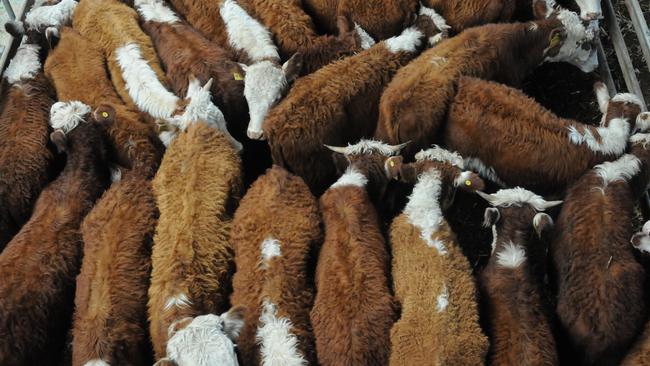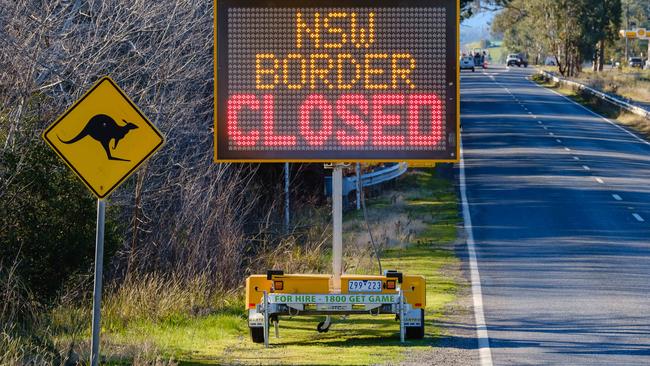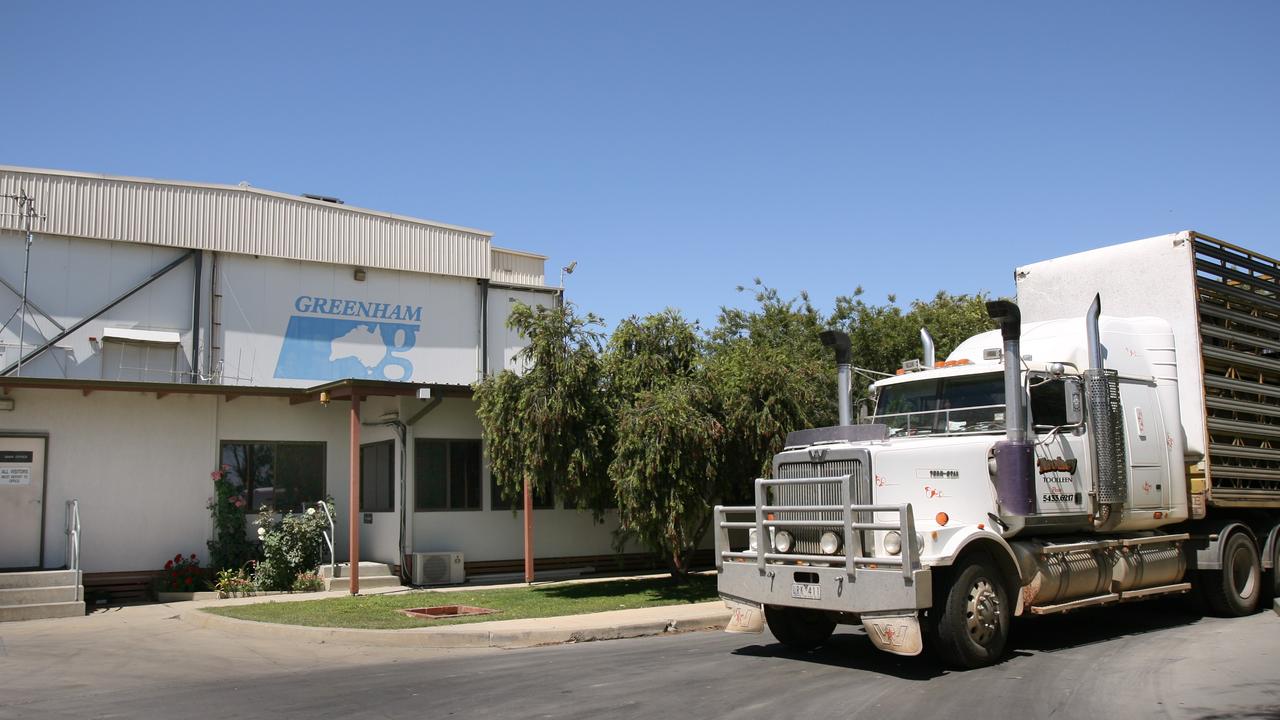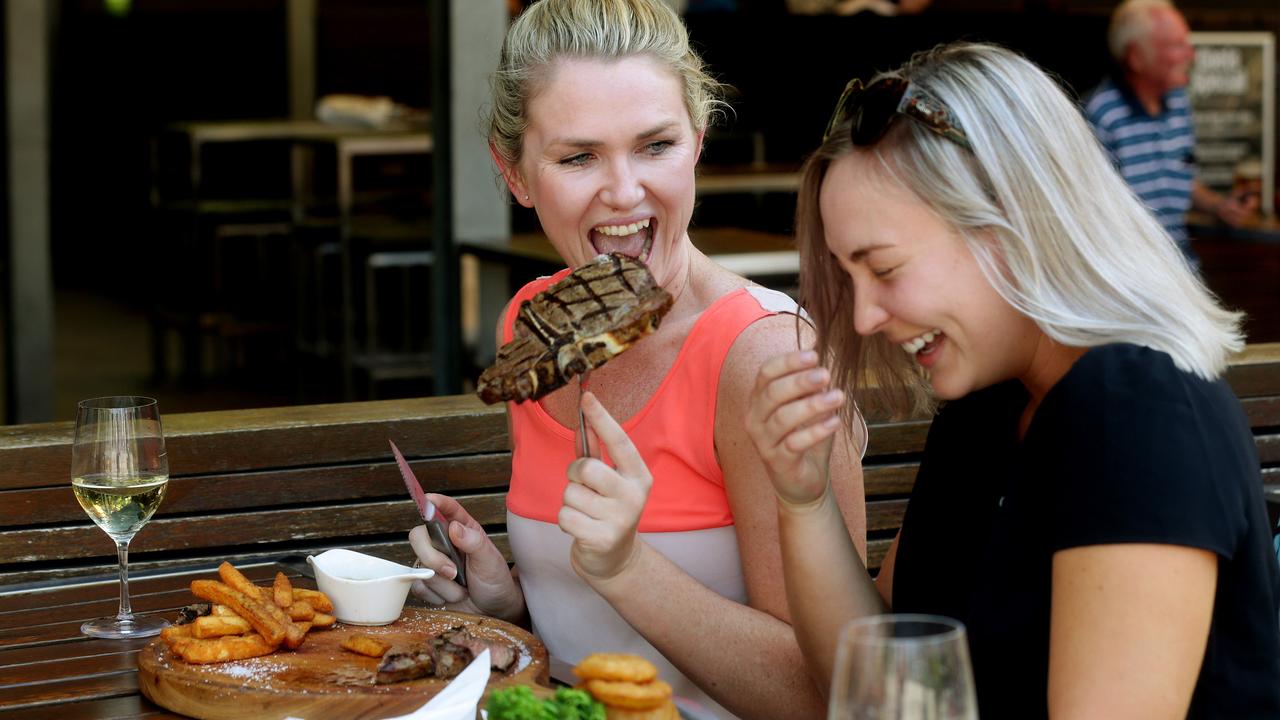Coronavirus Victoria: Red meat industry to struggle under new restrictions
Victorian abattoirs already struggling with coronavirus outbreaks will be forced to cut staff by a third. Here’s how new restrictions will affect the red meat industry.

VICTORIA’s red meat industry is staring into the unknown as abattoirs scramble to bring in tough new restrictions from Saturday.
Victorian abattoirs have been ordered to cut back their workforces by a third for six weeks, in an effort to stem the coronavirus outbreaks plaguing the sector.
Though industry has dodged a complete shutdown, producers could face a short-term hit at saleyards, spring lamb sales are up in the air, and processors fear they won’t be able to hold on to workers they are forced to stand down.
Thirteen meat processors – which are high-risk sites for coronavirus spread, due to close working conditions – have now been linked to almost 500 cases, prompting the Victorian Government to order all sites cut their workforce by 33 per cent.
Premier Daniel Andrews confirmed this reduction is based on workforce numbers as of last week, not peak capacity.
Many processors were already operating well below capacity, due to below-average slaughter rates for both cattle and sheep so far this season due to restocking across Australia’s east coast.
Midfield Meats’s Warrnambool plant peaks at about 1300 workers a day, but low throughput means there’s currently just 340 staff at present. Spokesman Dean McKenna says cutting that further will hurt.
“Because of our revenue, there is no JobKeeper or JobSeeker, none of our people are eligible for that. For us to support the bare minimum 300 people on site, the wage support would equate to $3.8 million over the six weeks, and we can’t afford that,” he said.
Mr McKenna said the meat processing industry was “like a bike chain” with all employees essential to ensuring functionality: “Our migrant workers do not have the support systems in place. If we shut for a day, our migrant fraternity will move to another workforce. Then we can’t get workers in later.”
Australian Meat Industry Council is warning the new rules will mean a 30 per cent drop in production, which will lead to a reduction in meat supplies for shoppers, and for exports.
The current low throughput means farmers may be shielded from price drops at saleyards, but it’s not guaranteed.
“If there’s not much capacity for production in Victoria, you could see some of those sales impacted price-wise,” Thomas Elder Markets analyst Matt Dalgleish said.
“It might not be as extreme as in the US (when its meat processing plants were shutdown), where they had about a 20 per cent decline in prices. But their issues were much more widespread across the country.”
Mr Dalgleish said chicken and pork producers and processors could feel the pinch more than red meat, as the sector didn’t have the same peaks and troughs.
“That slaughter tends to be steady throughout the year. Farmers and abattoirs are geared up to deliver a specific amount,” Mr Dalgleish said.
“At least with cattle and sheep farmers have the option to hold back livestock a little longer.” Spring lamb sales and processing, however, could be under threat, with the six-week restrictions ending just as the traditional spring flush hits.
Federal Agriculture Minister David Littleproud feared it would have a significant impost on the lamb season, and urged all states to ensure their meat processing protocols were in top shape.
“Obviously there is processing capacity across the country but that takes time to ramp up,” Mr Littleproud said.
“This is not just a Victorian thing, this can break out in any state. We need to make sure we’ve got everybody linked in.”
Meanwhile, border restrictions continue to hinder agriculture, particularly around the movement of workers.

International travel bans mean the flow of foreign workers coming to work in agriculture has turned off, while border closures between states are creating headaches for all sectors including horticulture, grains and wool.
The NSW Government last week backflipped on its ban on seasonal workers from Victoria, which had already cost the citrus industry an estimated $13 million and left up to 1200 temporary visaholders out of work.
NSW reversed their decision following industry and union pressure, to allow workers who had already been in the designated Victorian-NSW border zone to cross.
However, Victorian Farmers Federation president David Jochinke said many issues remained with getting ag workers across both the NSW and South Australian borders.
Farmers who lived or had properties outside of SA’s 40km border corridor were struggling to get through checkpoints, while harvest contractors and shearers were all unclear if they would be able to leave Victoria to head north.
“We still haven’t actually seen the peak workforce or harvest demands to challenge these systems,” Mr Jochinke said.
“You could be prevented from something as simple as shifting hay up north with multiple trucks in hay season, or carting grain to a silo which could be in another state.”
Ms Symes said Victoria was still working with both the NSW and SA governments to reach solutions to the ongoing issues faced.
Mr Jochinke urged farmers to make sure they had COVID-Safe plans in action and were abiding by the rules.
“We’re privileged to enjoy the ability to operate but our obligation is we’ve got to make sure we’re doing our bit,” he said.


